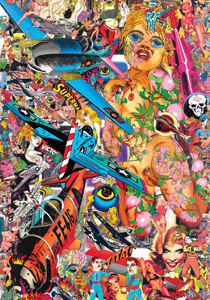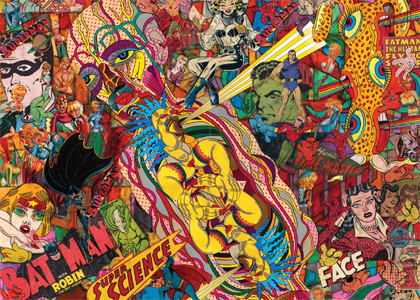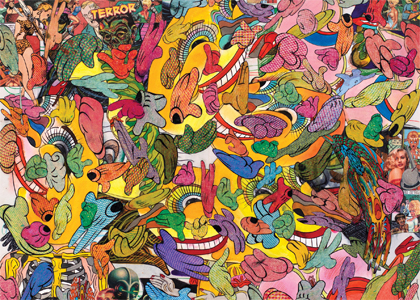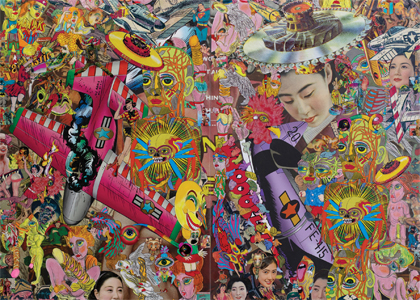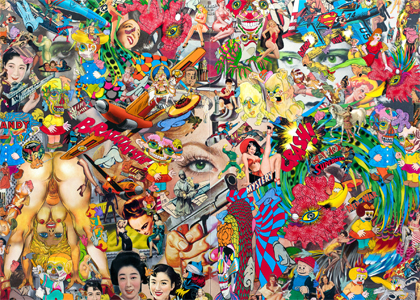Artist's book.
The kaleidoscopically simmering works of Keiichi Tanaami interlink the American comic world, psychedelic nightmares and Japanese culture. The colourful compositions create a cosmos of their own and tell about war and disease in a surprisingly concrete way. As a child during the Second World War the artist experienced the US air attacks on Tokyo and these became important motifs in his art: roaring American bombers, Japanese searchlights, his grandfather's deformed goldfish.
Keiichi Tanaami (1936-2024) is looked upon as the forerunner of
Japanese Pop Art and is one of the country's most influential artists. Born in Tokyo as the son of a textile wholesaler, he was nine years old when he experienced the bombing of Tokyo towards the end of World
War II. He studied at the Musahino Art University, visited
Andy Warhol in New York in 1969, worked with both
Robert Rauschenberg and art critic
Michel Tapié during their travels to Japan, and designed record covers for Jefferson Airplane and The Monkees.
He maintained a successful career as an illustrator and a graphic designer throughout the 1960s and early '70s, and was appointed as the first artistic director of the Japanese edition of
Playboy magazine in 1975. With an infinite artistic appetite, Tanaami continued to work across all boundaries, embracing painting, sculpture, performance and film, as well as a professor on the Faculty of Information Design at the Kyoto University of Art and Design in Japan.


